Sound Association Easy Worksheets for Ages 3-9
5 filtered results
-
From - To
Discover our engaging "Sound Association Easy Worksheets" designed specifically for children ages 3 to 9! These printable resources help young learners connect sounds with images, enhancing their auditory discrimination and vocabulary skills. Our fun, interactive exercises encourage kids to identify and associate familiar sounds with relevant pictures, making learning enjoyable and effective. Each worksheet promotes early literacy skills and supports cognitive development through playful activities. Ideal for teachers and parents alike, these worksheets are perfect for classroom settings or at-home learning. Download now to inspire your child’s listening abilities and boost their confidence in recognizing sounds!
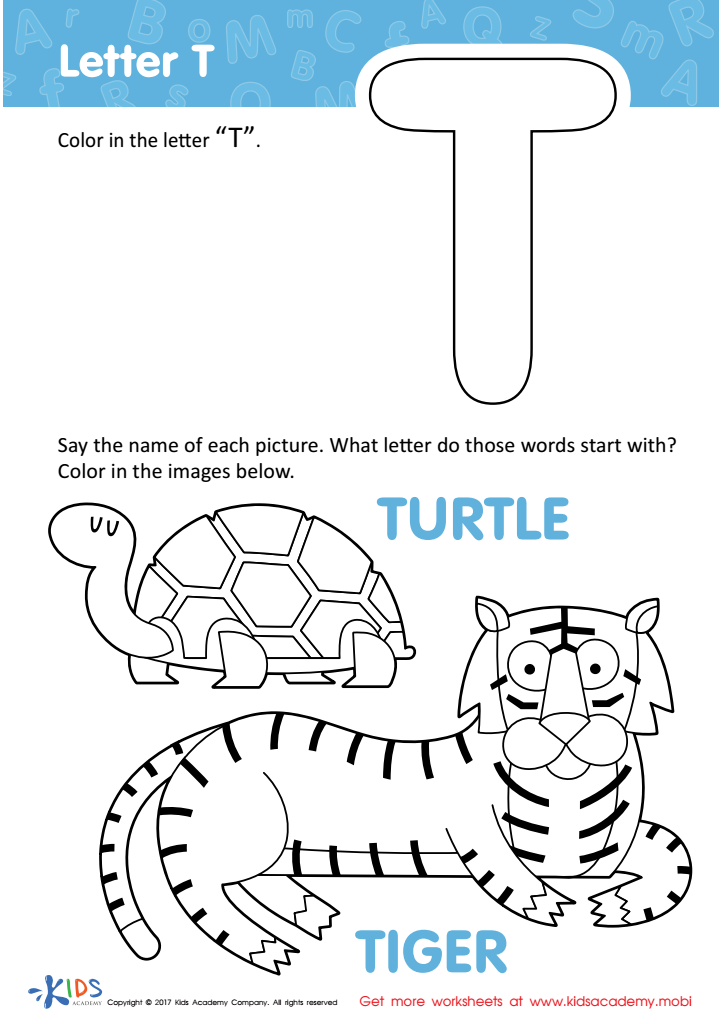

Letter T Coloring Sheet
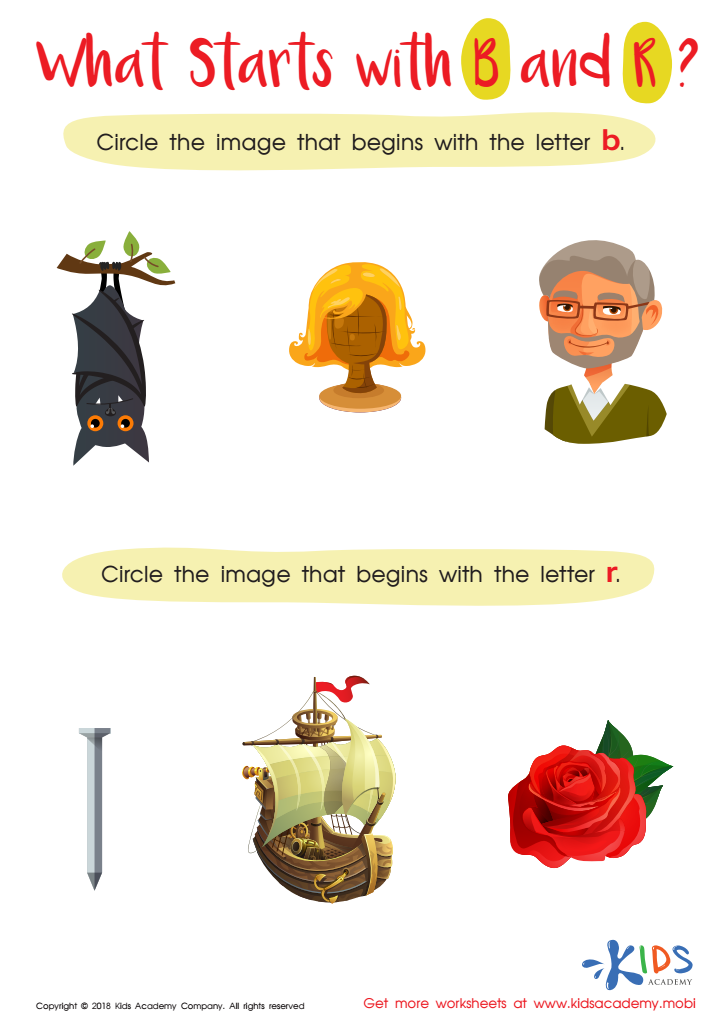

What Starts with B and R? Worksheet
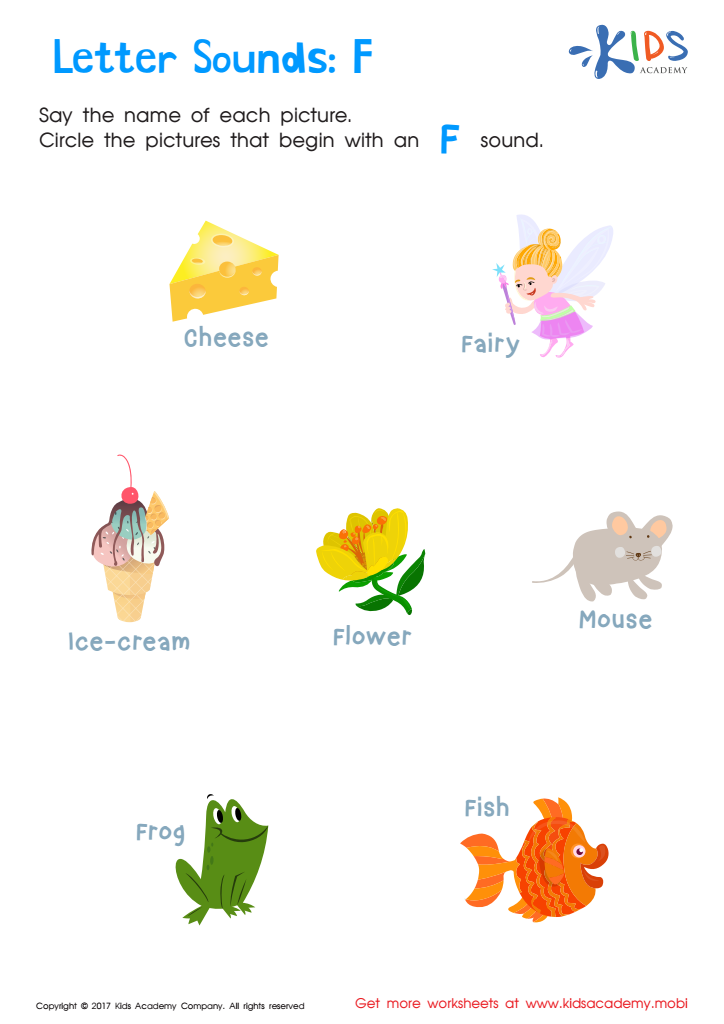

Letter F Sounds Worksheet
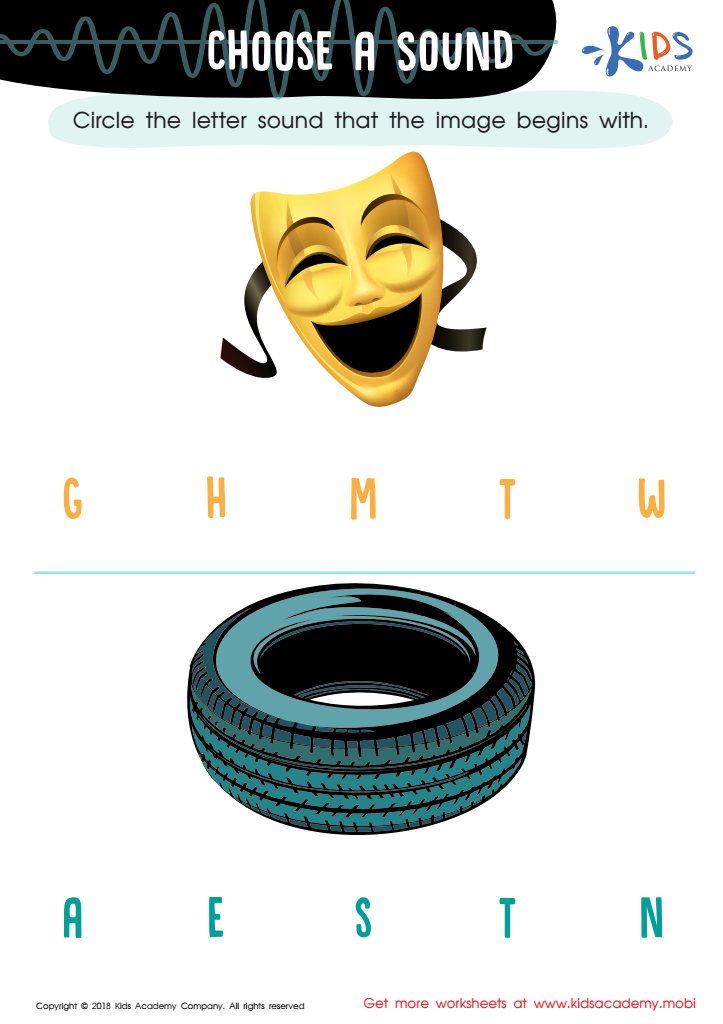

Choose a Sound Worksheet
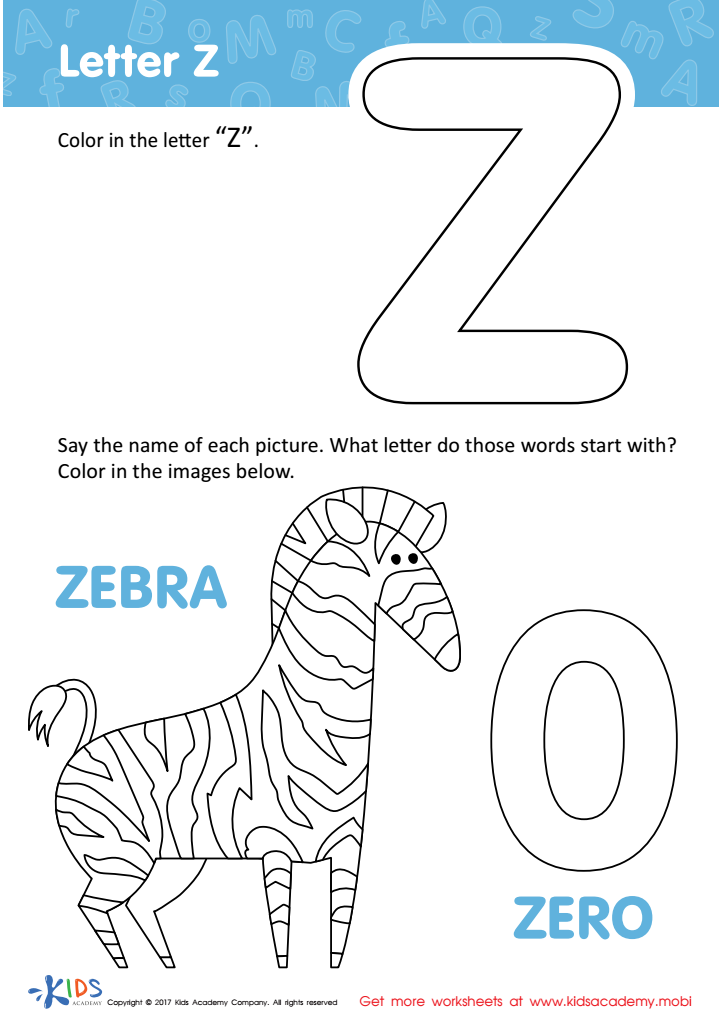

Letter Z Coloring Sheet
Sound Association Easy is a foundational concept for children aged 3-9, crucial for early literacy development and language acquisition. Understanding sound associations helps young learners connect phonemes (sounds) with the symbols represented by letters and words, enhancing their reading and writing skills.
Parents and teachers should care about this skill because it fosters a child's ability to decode words, which is essential for reading fluency. Children who can identify and manipulate sounds are more likely to succeed in school and have heightened confidence when engaging with text. Furthermore, grounding children in sound associations boosts their vocabulary, enabling richer language experiences and facilitating effective communication skills.
Moreover, integrating sound association activities can be enjoyable and promote meaningful interactions, making learning engaging for children. These activities can include phonics games, songs, and storytelling, supporting overall cognitive development.
Supporting children through sound association not only lays a solid literacy foundation but also nurtures critical thinking and problem-solving skills. As such, parents and teachers play a pivotal role in guiding young learners through this essential developmental phase, paving the way for lifelong learning, academic success, and a love for reading.
 Assign to My Students
Assign to My Students




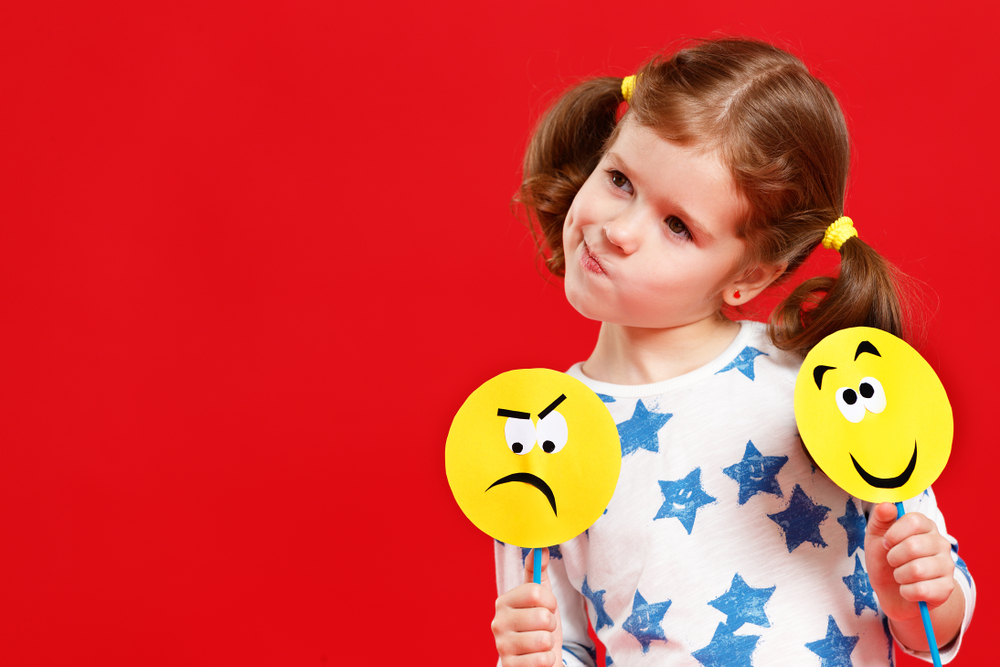
.jpg)














